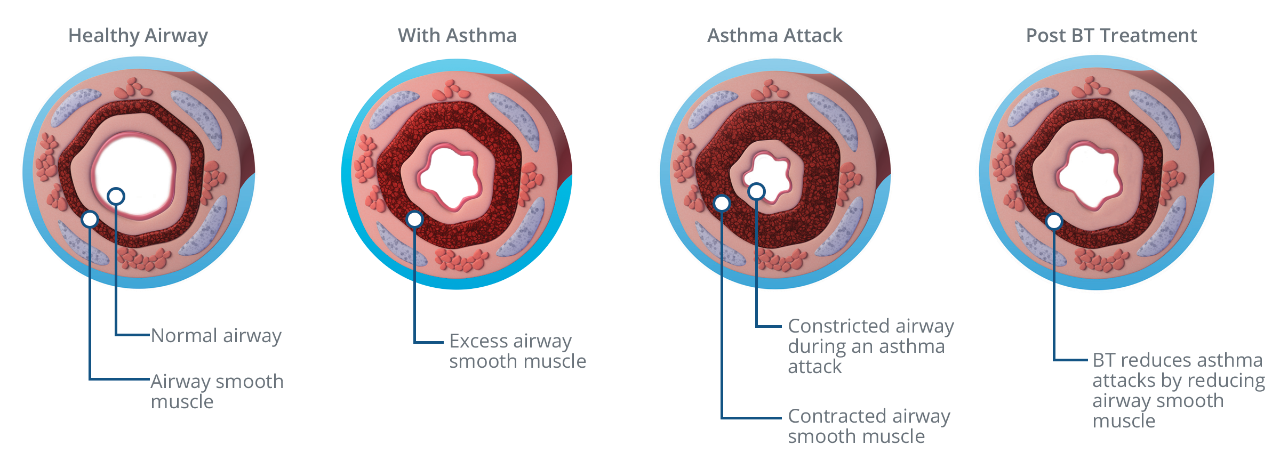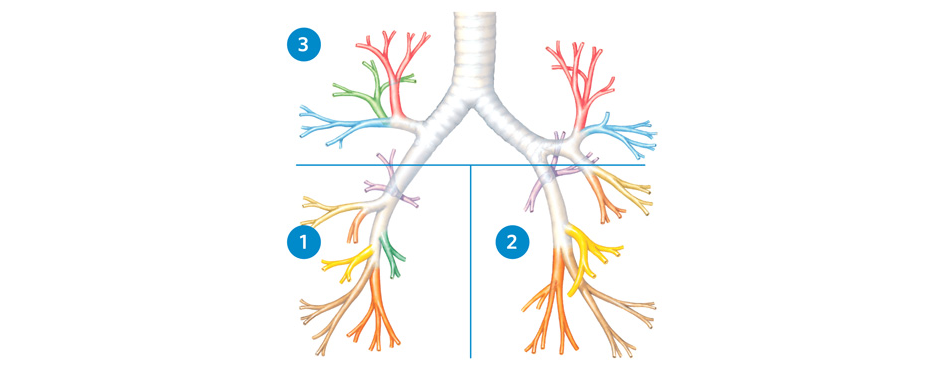Bronchial Thermoplasty (BT) reduces Severe Asthma exacerbations by reducing excess airway smooth muscle
Less smooth muscle tissue means less airway constriction during an exacerbation

BT-Treated airway remains open during a simulated Asthma Attack
This demonstrates how Bronchial Thermoplasty reduced airway narrowing in response to direct application of methacholine (a bronchoconstrictor).
Watch NowBT is performed in 3 sessions

BT is complete after 3 sessions, each treating a different part of the lung to ensure safety (as Illustrated in the lung map). No incision is needed. BT is performed with a bronchoscope, inserted through the nose or mouth.
During the procedure, the Alair™ catheter delivers radiofrequency (RF) energy to the airway walls, applying mild heat in a controlled manner reducing the amount of excessive airway smooth muscle present in the airways.
It's important to note that no structural changes in the airways that were clinically significant were due to BT at 5 years.1
What patients should expect following the BT procedure
Patients are monitored similar to other bronchoscopy procedures and can be discharged the same day when vital signs and lung function are near normal levels.
Patients return to their regular asthma-treating physician for continued asthma management. BT works with daily maintenance medications to help reduce exacerbations over the long-term.
Patients should expect a temporary worsening of asthma symptoms following their procedure; symptoms typically resolve within a week of their procedure.
Learn what patients may be right for BT
Who is BT for?

We’re all in.
For you, for your patients.
Click below to be contacted by a representative

